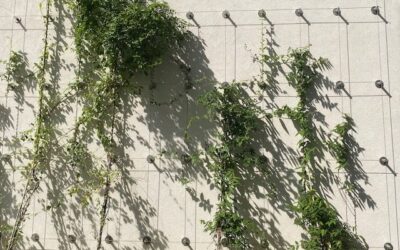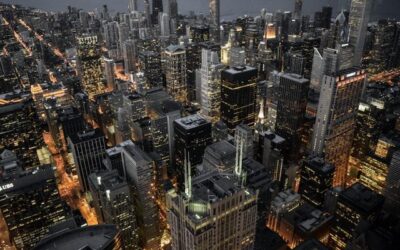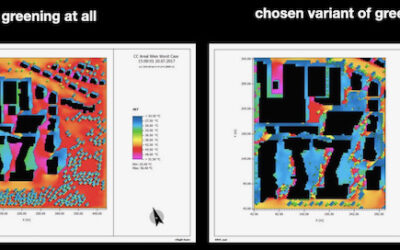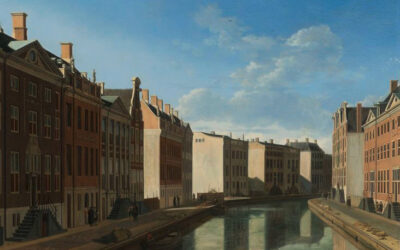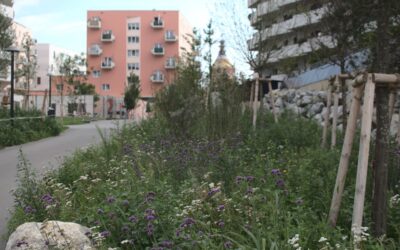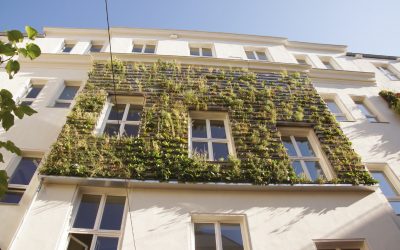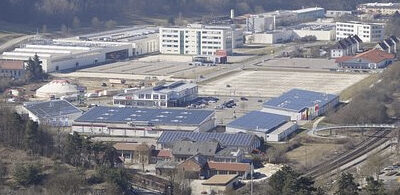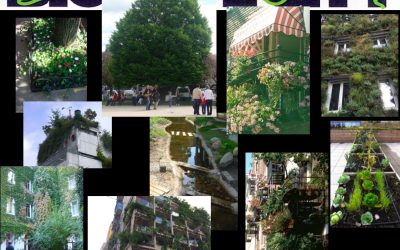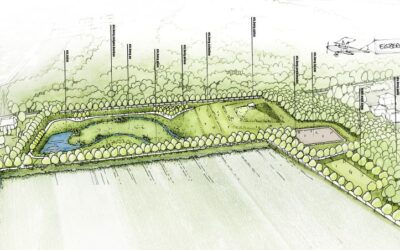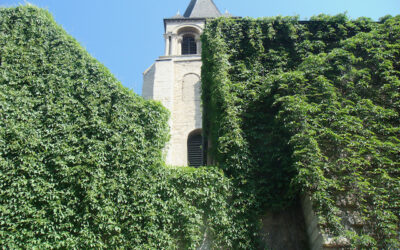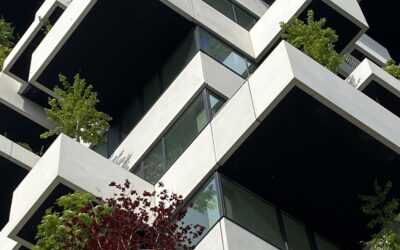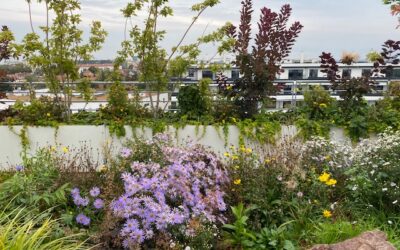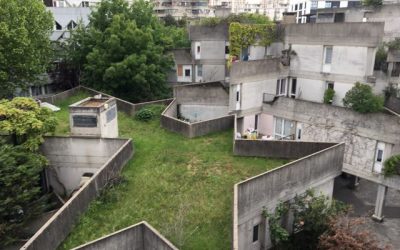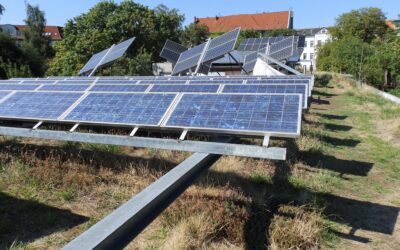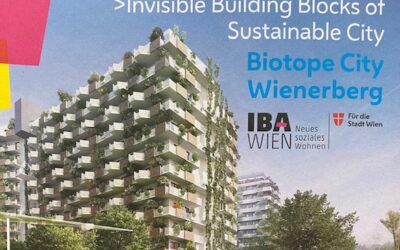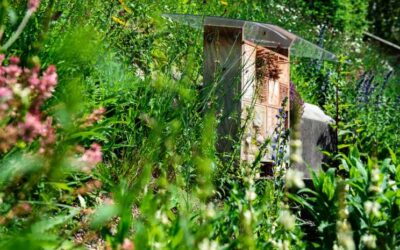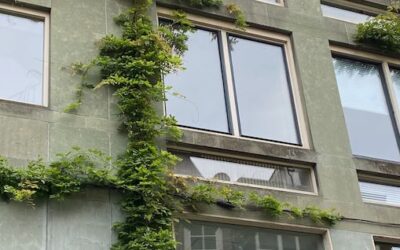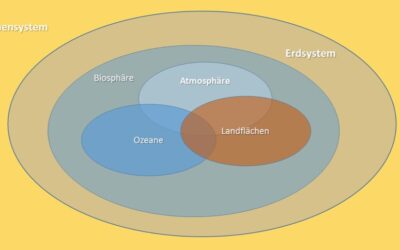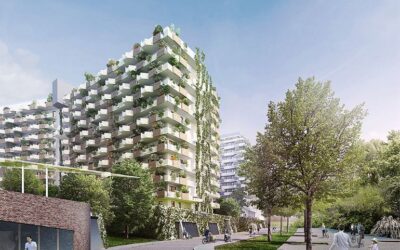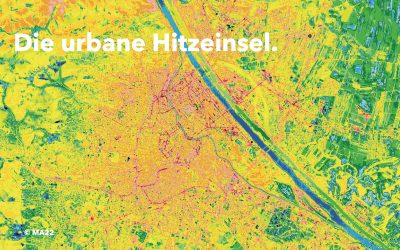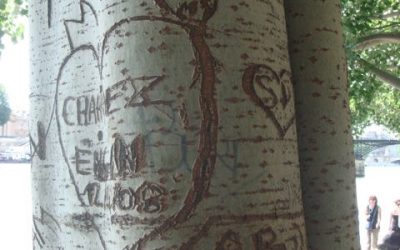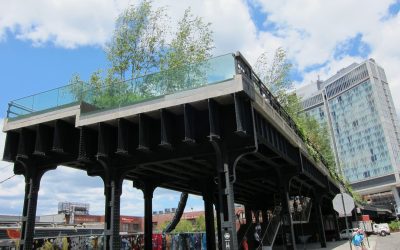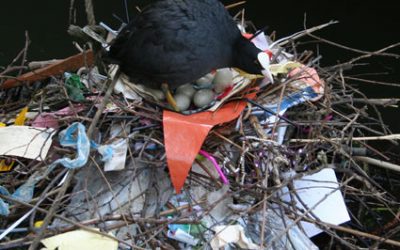BIOTOPE CITY JOURNAL
Building Greening and Fire Protection
An important topic! The City of Vienna recently introduced new subsidy regulations for the greening and unsealing of buildings - they are exemplary and will certainly lead to a surge in greening, especially in private buildings. And hopefully also provide an impetus...
The production of the future: urban planning in civil society
This text was published in 1997 in the anthology ‘Zivile Gesellschaft’ (Civil Society) edited by Schmals/Heinelt. 25 years later, it is amazing how accurately the necessity of the urban development strategies outlined for solving urban problems were described back then – and at the same time it is shocking how little of the outlined solution strategies, having lost none of their validity, have penetrated into the reality of society and its planning. Yet such a form of planning would be more necessary than ever in order to put a stop to the problems of nature destruction with its biodiversity and climate change on the one hand and the increasing lack of natural resources and space on the other. It is worth reading!
Differentiated Cost-Benefit Analysis of the Effects of Urban Greenery
Which of the green-blue infrastructures, green roofs or façades, or perhaps trees, are the most effective means of climate adaptation, especially against the increasing overheating of our cities? Given the costs involved, which solution is the best choice?
Regarder vers l’avenir – tirer les leçons du passé
Amsterdam 1671-1672 La 'baie d'or' du Herengracht. Peinture de Gerrit Adriaensz. Berckheyde, Gemeente Museum Amsterdam Le développement d'Amsterdam au 17e siècle comme paradigme de l'urbanisme bleu-vert et un exemple réussi à Vienne aujourd'hui Rien ne semble plus...
Looking back to the future – learning from the past
Amsterdam 1671-1672 The 'Golden Bay' of the Herengracht. Painting by Gerrit Adriaensz. Berckheyde, Rijksmuseum Amsterdam On the development of Amsterdam in the 17th century as a paradigm of blue-green urban planning and on a successful example in today's Vienna...
Towards an URBAN FUTURE: BIOTOPE CITY
Building the city of the future – a common saying. But what is really happening? Do we realise what the requirements of the future will be? Cities and city districts have to be built with a time horizon of centuries. We have to build the city of the future TODAY. But what does the future look like that we have to build for? What are its demands?
Vers l’AVENIR URBAIN: BIOTOPE CITY
La biodiversité menacée et l’expansion croisante des villem- quoi faire? Considérer la ville elle-même comme une forme de nature et donner de l’espace à la nature sous ses diverses formes dans l’environnement construit. C’est ‘voir la ville comme un biotope’, Biotope City. Conclure un contrat social avec la nature !
Fire protection with facade greening
Dr. Dieter Werner, Testing, Inspection and Certification Body of the City of Vienna, Head of the Building Physics Laboratory Is facade greening a fire hazard? The City of Vienna has been investigating the fire behavior of facade greening since 2015. In the meantime,...
Urban industrial areas as ecological potential
by dr. ir. Robbert Snep, Wageningen University & Research, Netherlands On the youtube canal of BIOTOPE CITY JOURNAL : https://www.youtube.com/@biotopecityjournal8524 At a rapid pace, we are still sealing huge areas of land every day - in Austria, this amounted to...
Greening the city – the utopian reality ?
Interview with Helga Fassbinder, emeritus professor at University of Technology and University of Technology Hamburg about the concept of Biotope City and its realization in Vienna, Austria
Green infrastructure as an integrative constituent and prerequisite of urban development
Is there a way to design and implement a customised green infrastructure for new settlement expansions? This article shows how a multifunctional and interdisciplinary planning approach can be used to develop a new settlement area in the city of St.Pölten called “Eisberg” despite climate change.
Greening Facades – A Historical Introduction
Greening buildings has a long tradition and has been practiced for thousands of years: it has many advantages – not only aesthetically, but also in terms of its effects on the environment and health. Recently, it has experienced a revival due to climate change.
First forest tower in social housing – planted in the Netherlands
Largely unnoticed by the experts, a special feature in the field of housing stands in Eindhoven, the Netherlands, a city of about 250,000 inhabitants: a Dutch 'Bosco vertical' - but not for rich residents, like the world-famous building in Milan, but a Bosco vertical...
The example of Biotope City Wienerberg: The green city at the crossroad of disciplines, investors and authorities
Contribution to the Conference of the Deutscher Werkbund Berlin on 'New Social Housing', May 2022 As architects and urban planners we design and build products that should still fulfil their function for at least 100 years. Of course, we cannot give an idea of the...
The Relationship between City and Nature in History
by Inken Baller. Greening architecture and urban development is part of the long tradition of making cities livable and healthy. A look into history up to the recent past.
Photovoltaic Plantscapes
It is a generally accepted requirement that green buildings combined with photovoltaic (PV) energy generation should be increasingly used in cities. However, photovoltaics, the necessary substructure and greening structure must be carefully coordinated. The aim of...
The Hidden Treasures of the Biotope City Wienerberg at Vienna
The Biotope City neighborhood in Vienna is attracting a lot of attention, visits and tours are the order of the day. But most of the sustainable and climate-efficient features are not easily or not at all visible. They are 'hidden treasures'. In order to track them...
What does biodiversity cost the taxpayer?
Unaffordable, especially now in view of the pandemic’s national debt? Christoph Küffer calculates the costs against the profits using Switzerland as an example.
Manifesto “BUILDING FOR NATURE” by environmental organisations and the largest construction companies in the Netherlands
"Nature measures must become an obligatory part of housing construction, according to the postulate of nature and environmental organisations and the largest construction companies in the Netherlands. They want nature to become a "natural component" of all new...
10 Theses on the sustainable, climate-friendly City of the Future
Climate change is on everyone's lips. At first glance, today's climate change, beginning with industrialisation in the 19th century, is a local / regional / Earth-wide increase in temperature and weather extremes. But more and more people feel that serious changes are...
The Biotope City Quartier Wienerberg – what is so special with it?
Biotope City Wienerberg is a neighbourhood that has broken new ground in many areas. In this it is part of the great tradition of Viennese housing construction, which for 100 years has repeatedly gone far beyond what was common practice in housing construction at the...
Housing in a climate emergency
An affordable, climate-efficient measure, which could be implemented immediately. By Helga Fassbinder
Michael Sorkin 1948-2020
On March 26, 2020, architect and publicist Michael Sorkin died after being infected with the corona virus. Sorkin was a warm advocate of “green urbanism”.
Biotope City – The dense City as Nature
What does this mean? Is this a real option? Helga Fassbinder shows yes, and there will beno escape from this concept…
THE HIGH LINE NEW YORK – ONCE AN OASIS, NOW A THEME PARK
Click on images to enlarge "...The High Line was originally constructed in the 1930s, to lift dangerous freight trains off Manhattan's streets... Friends of the High Line (founded by Joshua David and Robert Hammond, residents of the High Line neighborhood,...
WILDLIFE IN THE CITY
WILDPARK CITY Helga Fassbinder The formula “The City as Nature” asks for a definition how one understands by nature. Where to start? Where does it belong? The question is explosive, especially among biologists but also among ordinary people: when nature has...

